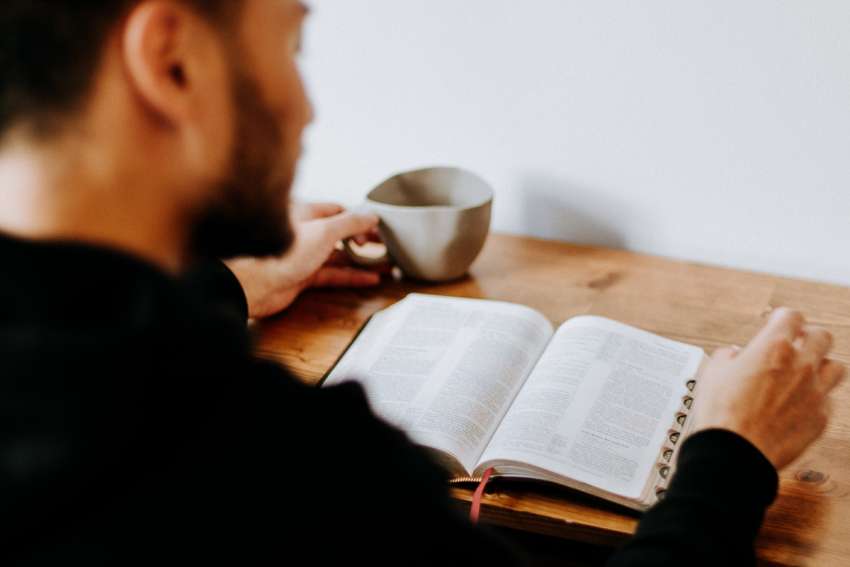People new to, or wishing to grow deeper in faith, often ask me to recommend good Catholic books. The height of understatement is to say coming up with such a list is a daunting challenge in a tradition that, beginning with the Holy Scriptures, has an almost inexhaustible treasury of books. Faithful Catholics should do what we can to form ourselves continually in the faith. We should, first and foremost, read the Bible at a minimum weekly. Beyond that, where do we begin with such a wide array of texts spread over 2,000 years of Christianity?
We should be guided by three principles: 1) read a variety of books, including fiction; 2) read books you find interesting or by authors you admire; and 3) do not be afraid of old books or ones that are challenging. Here is a list of 12 such Catholic books I most frequently recommend. When I say Catholic books, I include books by Catholic writers but also books drawing broadly from the catholic and apostolic tradition going back to the early centuries of the Church. Why 12 books? Well, it’s a nice apostolic number and for we slow readers can read a book a month. Some will be familiar. Many will not.
Here are four books that can support our growth in the spiritual life:
- Romano Guardini. The Lord. This is a truly helpful book of almost 90 reflections by this 20th-century Italian-German theologian on Christ’s life from His origins to His second coming. Pope Benedict saw this book as having a mission in helping to lead souls to Christ. You can read it as a collection of daily reflections and then read it again.
- Dom Lorenzo Scupoli. The Spiritual Combat and a Treatise on Peace of Soul. St. Francis de Sales read daily from this late 16th-century guide to the spiritual life. It is a no-holds-barred guide to the depths of the human soul and its call to a virtuous life in Christ. The Spiritual Combat is organized into 66 chapters making it another good source for daily reflections.
- St. John of Sinai (‘Climachus’). The Ladder of Divine Ascent. Written in the early seventh century, The Ladder is one of the great works of Christian spirituality. St. John guides us in how to battle the passions and acquire the virtues, likening it to climbing a 30-rung ladder toward faith, hope, and love. Traditionally, Byzantine Catholics read it during Lent.
- Fr. J. Augustine Wetta, osb. Humility Rules: Saint Benedict’s Twelve-Step Guide to Genuine Self-Esteem. A Benedictine monk of St. Louis Abbey in Missouri and a high school teacher and coach, Fr. Augustine employs the Rule of St. Benedict in a delightfully quirky and direct manner to remind us that it’s not all about us. He turns the popular secular self-help genre on its head in revealing what, or Who, is most important. It is ideal reading for the high schoolers and young adults in your life, but we can all benefit.
Secondly, here are four books that can enlighten us about what the Church holds to be true in its doctrine and practice:
- St. Athanasius. On the Incarnation. One of the greatest texts written by any theologian in any age, this doctor of the Church and fourth-century bishop helps us to understand what the Incarnation is and why it was not only necessary but also part of God’s eternal plan.
- Ven. Fulton J. Sheen. The Mystical Body of Christ. First recommended to me by my friend Fr. Raymond de Souza, Bishop Fulton Sheen’s 1935 book on what is the Church is now a Catholic classic. It outlines in a simple yet brilliant way what the Church is and why we need it.
- Cardinal Joseph Ratzinger. The Spirit of the Liturgy. Are you exhausted by the liturgy battles in the Church today? Read this essential book written by Pope Benedict XVI and find clarity about the nature and beauty of the Mass. He elaborates on why misunderstandings of the Second Vatican Council decrees on the sacred liturgy must be fully addressed.
- Peter J. Kreeft. Catholic Christianity. This is perhaps one of the best and most accessible elaborations on what the Church teaches. Delving into the Catechism, it is an essential companion to growing in our faith. Every Catholic library should have a copy.
Next column, I will recommend four books of poetry and fiction and four on Church history.


